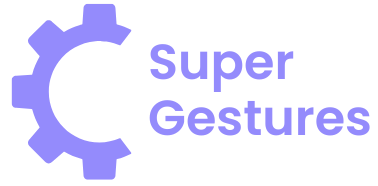Table of Contents
ToggleIn a world where coding skills are as essential as knowing how to boil water, beginner coding tutorials are the secret sauce for turning tech novices into programming pros. Whether it’s crafting a website or automating mundane tasks, learning to code opens doors to endless possibilities. But let’s face it—diving into the coding pool can feel like jumping into a shark-infested ocean, especially without a life jacket.
Overview of Beginner Coding Tutorials
Beginner coding tutorials serve as essential resources for newcomers to the programming world. These tutorials cover a variety of topics, including web development, data analysis, and app creation. Structured formats such as video lessons, interactive coding platforms, and written guides help learners grasp concepts effectively.
Many tutorials focus on popular programming languages like Python, JavaScript, and Ruby. Each language offers unique advantages, making it important to choose one that aligns with personal goals. Python’s simplicity appeals to absolute beginners, while JavaScript stands out for those interested in web technologies.
Interactive coding sites also enhance learning by allowing users to practice coding in real-time. Platforms like Codecademy and freeCodeCamp provide hands-on experiences that reinforce theoretical knowledge through practical application. Engaging with a community of fellow learners fosters collaboration and support.
New learners often face challenges, such as debugging errors and understanding complex concepts. Beginner tutorials aim to address these obstacles by breaking down topics into manageable chunks. They simplify problem-solving techniques and emphasize logical thinking, making coding less intimidating.
Regularly participating in coding exercises and projects solidifies skills and builds confidence. Many tutorials encourage users to develop personal projects, showcasing what they’ve learned. This approach not only reinforces knowledge but also helps individuals create tangible portfolios, which can be valuable when seeking job opportunities.
Access to beginner coding tutorials is widespread, with many resources available for free or at low cost. Subscribing to reputable platforms or following coding blogs provides constant access to updated content and tips. By leveraging these resources, beginners can transform their coding aspirations into reality.
Popular Programming Languages for Beginners
Beginner coders often explore several programming languages to find one that resonates with their goals and interests. Each language offers distinct features, making it important to understand their advantages.
Python
Python stands out for its straightforward syntax, which simplifies learning for newcomers. Many educational platforms emphasize Python due to its versatility in web development and data analysis. Resources like Codecademy offer interactive projects, enhancing practical understanding. Professionals frequently use Python in fields such as machine learning and scientific computing, making the language widely applicable. Its active community supports beginners through forums and tutorials, promoting a collaborative learning environment.
JavaScript
JavaScript plays a critical role in web development, enabling developers to create interactive websites. Many beginners gravitate towards JavaScript since it operates in the browser, allowing immediate feedback during coding sessions. Online platforms such as freeCodeCamp provide hands-on projects that reinforce essential concepts. The demand for JavaScript skills in the job market continues to grow, encouraging beginners to learn this language early in their coding journey. Engaging with JavaScript unlocks opportunities for those interested in front-end and back-end development.
Ruby
Ruby is recognized for its elegant syntax, prioritizing simplicity and productivity. Developers often appreciate Ruby for fostering quick development cycles, especially with the Ruby on Rails framework. Many coding tutorials focus on Ruby to introduce beginners to web application development. Resources like The Odin Project and Learn Ruby support self-paced learning through project-based approaches. The Ruby community encourages sharing knowledge, making it easier for newcomers to find mentorship and assistance.
Types of Beginner Coding Tutorials
Beginner coding tutorials come in various formats, each catering to different learning styles. These formats include online courses, video tutorials, and interactive coding platforms.
Online Courses
Online courses provide structured content for new learners. They often consist of comprehensive modules covering essential programming concepts. Platforms like Coursera and Udemy host a range of courses tailored for beginners, focusing on languages such as Python, JavaScript, and Ruby. Learners benefit from this method as they receive a mix of theoretical knowledge and practical exercises. Many courses also offer certification upon completion, adding value to the learner’s skills. Accessibility is a key feature, with many options available free or at a low cost.
Video Tutorials
Video tutorials deliver visual and auditory learning experiences. YouTube hosts countless channels dedicated to beginner coding, featuring step-by-step instructions for various projects. This format caters to those who prefer seeing concepts in action. Viewers can rewind and pause videos as needed, allowing for personalized pacing. Channels often cover popular languages and frameworks, making it easy to align video content with personal goals. Many creators encourage community engagement through comments, fostering a supportive learning environment.
Interactive Coding Platforms
Interactive coding platforms offer hands-on experience with immediate feedback. Websites like Codecademy and freeCodeCamp let users write code directly in a web browser. This real-time practice helps solidify programming skills through guided exercises and projects. Challenges encourage problem-solving and critical thinking, essential for any aspiring coder. Additionally, many of these platforms feature community forums where learners can ask questions and collaborate. Such environments can significantly enhance the learning journey for beginners.
Choosing the Right Tutorial
Selecting the right coding tutorial enhances the learning experience. Identifying personal objectives and ensuring alignment with tutorial offerings is crucial.
Assessing Your Learning Style
Visual learners benefit from tutorials featuring engaging videos and diagrams. Many individuals who grasp concepts better through text prefer detailed written guides. Kinesthetic learners thrive in interactive environments that provide hands-on coding experiences. Assessing one’s learning style helps in choosing the most effective format, whether it’s video lessons, online courses, or interactive platforms. The alignment of the tutorial’s teaching methods with personal preferences boosts retention and understanding.
Setting Realistic Goals
Defining achievable goals plays a vital role in maintaining motivation. New coders should establish clear objectives, such as completing a specific module or building a simple project. Setting incremental milestones prevents feelings of overwhelm, allowing learners to celebrate small successes along the way. Goals should reflect personal interests, whether in web development or data analysis, emphasizing relevance. Regularly revisiting these goals aids in maintaining focus and satisfaction throughout the learning journey.
Embarking on a coding journey can be both exciting and daunting. Beginner coding tutorials provide the essential foundation needed to navigate this new landscape. With diverse formats and a wealth of resources available, newcomers can find the right fit for their learning style and goals.
By engaging with these tutorials and practicing consistently, individuals can overcome initial challenges and build confidence in their abilities. As they progress, they’ll discover the endless possibilities that coding offers, empowering them to create and innovate in a digital world. The journey may be challenging but with the right tools and mindset, anyone can become a proficient coder.




